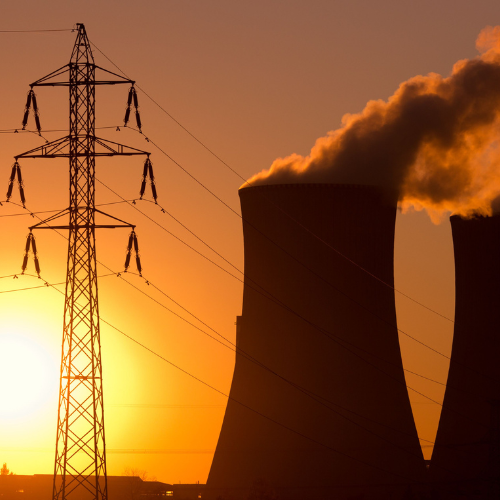4.22.2019 UPDATE: NJ APPROVES $300M NUCLEAR BAILOUT: INCREASES LOOMING FOR RATEPAYERS
On April-18th, the NJ Board of Public Utilities (BPU) approved nuclear subsidies for PSEG to help operating costs at the Salem I, Salem II, and Hope Creek Nuclear reactors in Lower Alloways Creek. With the subsidies now in hand, PSEG is equipped to operate the plants for decades.
As a result of the BPU’s decision, the average residential utility customer for PSEG should expect to pay $41/annum for the subsidies. For commercial customers, the rate should equate to $0.004/kWh. These charges will be passed through to the ratepayer via a PSEG tariff change and rate hike. If you are currently on a third-party supply contract, you will see it as a separate line item on your invoice. The effective date is still pending, but we will update this article once confirmed.
Responding to the increase in PSEG rates, NJBPU President Joseph Fiordaliso said, “We do not make this decision lightly and the Board must balance protecting ratepayers with our responsibilities to the citizens of the state. We have a moral obligation to our fellow citizens to do everything we can to decrease carbon emissions.” [4]
In reality, this decision has been in the cards for some time. In 2018, Gov. Phil Murphy signed a law that set aggressive energy goals; requiring the state obtain 50% of its energy from clean sources by 2030. Currently, 90% of the state’s clean energy comes from nuclear generation. Losing the nuclear plants significantly reduces the chances of reaching that goal of 50% clean energy by 2030.
This move is in line with similar state decisions made in 2017 by New York and Illinois. Currently, Pennsylvania, Ohio, and Maryland are also considering similar legislation.
Public Service Enterprise Group, otherwise known as PSEG in NJ, has requested approval for up to $300 million in state subsidies, annually for the next three years. PSEG has claimed the need for these subsidies in order to keep their three nuclear facilities in operation: Hope Creek, Salem I, & Salem II.
Why is PSEG requesting subsidies?
PSEG has continually stated that keeping nuclear plants will help provide New Jersey with a clean energy option to assist in reaching the state’s clean energy goals and reduce their dependency on fossil fuels. Although Nuclear is a clean energy option, there are cheaper and more abundant resources (like coal and natural gas) to provide energy to the grid at a more competitive rate.
PSEG Power CEO Ralph LaRossa said, “The market is going to the next-cheapest product… If the marketplace is not paying enough, that’s where the ZEC application comes in. It’s going to be as competitive as any other.”[1] As a result of this competition between resources, PSEG is finding it inefficient and unsustainable to continue the operations of their three nuclear facilities.
How does this affect Ratepayers (customers like you)?
The burden of these subsidies will likely fall onto the end user, passed through to them in the form of Zero Emission Credits (ZECs) – which will display as an additional line item on your PSEG utility bill. If the subsidies are not approved and the plants were to close, Dean Murphy of the Brattle Group contends the nuclear energy would be replaced by fossil-fuel units that would spike ratepayer bills by as much as $400 Million – approximately $0.004/kWh (see example below). Regardless of the decision made by the BPU in April, it seems price increases for NJ PSEG customers is inevitable.[2]
If the nuclear facilities were to close, the fuel mix (ratio of different fuels that contribute to electricity production) in NJ would likely lead to increased dependency on natural gas and coal. As a result, customers could expect higher volatility in rates paid, as those fuel’s prices fluctuate. When considering how the state will meet its energy needs in the future with fossil fuels, the cost seems environmental as well.
Opposition to PSEG’s claims:
The request for approval has been met with fierce opposition. Many economists have refused to acknowledge the validity of PSEG’s projections of losses. Joseph Bowring, who oversees the competitiveness of the PJM Market, contested, “PSEG overstates its need for subsidies of Hope Creek and Salem I and Salem II units. PSEG understates forward energy revenues, understates capacity revenues, overstates costs and overstates the risks.”[3]
If Bowring’s comments ring true, the BPU will have an opportunity to reject PSEG’s request in April. Regardless of the outcome, it seems that higher electricity prices could be on the horizon for NJ customers.
Stay updated by signing up to receive alerts about the BPU’s decision and the timing of rate increases.
Example of Annual Financial impact on PSEG Ratepayers:
Small Manufacturer PSEG
11,000,000 kwh/annum
PSEG “ZEC” increase charge: $0.004/kwh
Total Increase per annum: $44,000.00
Sources:
Johnson, Tom. “Another Expert Casts Doubt on Need for NJ to Subsidize Nuclear Plants.” Another Expert Casts Doubt on Need for NJ to Subsidize Nuclear Plants – NJ Spotlight, 11 Feb. 2019, www.njspotlight.com/stories/19/02/10/another-expert-casts-doubt-on-need-for-nj-to-subsidize-nuclear-plants/
Johnson, Tom. “PSEG Affirms It Will Shut Down Nuclear Plants Unless It Gets Big Subsidies.” PSEG Affirms It Will Shut Down Nuclear Plants Unless It Gets Big Subsidies – NJ Spotlight, 5 Oct. 2018, www.njspotlight.com/stories/18/10/04/pseg-affirms-it-will-shut-down-nuclear-plants-unless-it-gets-big-subsidies/
Johnson, Tom. “PSEG First to File for Subsidies to Keep Its Nuclear Plants Online.” PSEG First to File for Subsidies to Keep Its Nuclear Plants Online – NJ Spotlight, 20 Dec. 2018, www.njspotlight.com/stories/18/12/19/pseg-first-to-file-for-subsidies-to-keep-its-nuclear-plants-online/
Khemlani, Anjalee. “PSEG’s LaRossa Insists Utility Will Close Nuclear Plants without Subsidy – ROI-NJ.” ROI, 22 Feb. 2019, www.roi-nj.com/2019/02/14/industry/psegs-larossa-insists-utility-will-close-nuclear-plants-without-subsidy/
Johnson, Tom. “Huge Win for PSEG as Reluctant BPU Approves Nuclear Subsidies.” Huge Win for PSEG as Reluctant BPU Approves Nuclear Subsidies – NJ Spotlight, 19 Apr. 2019, www.njspotlight.com/stories/18/10/04/pseg-affirms-it-will-shut-down-nuclear-plants-unless-it-gets-big-subsidies/
[1] Khemlani 02.2019
[2] Johnson 10.2018
[3] Johnson 12.2018
[4] Johnson 4.2019



